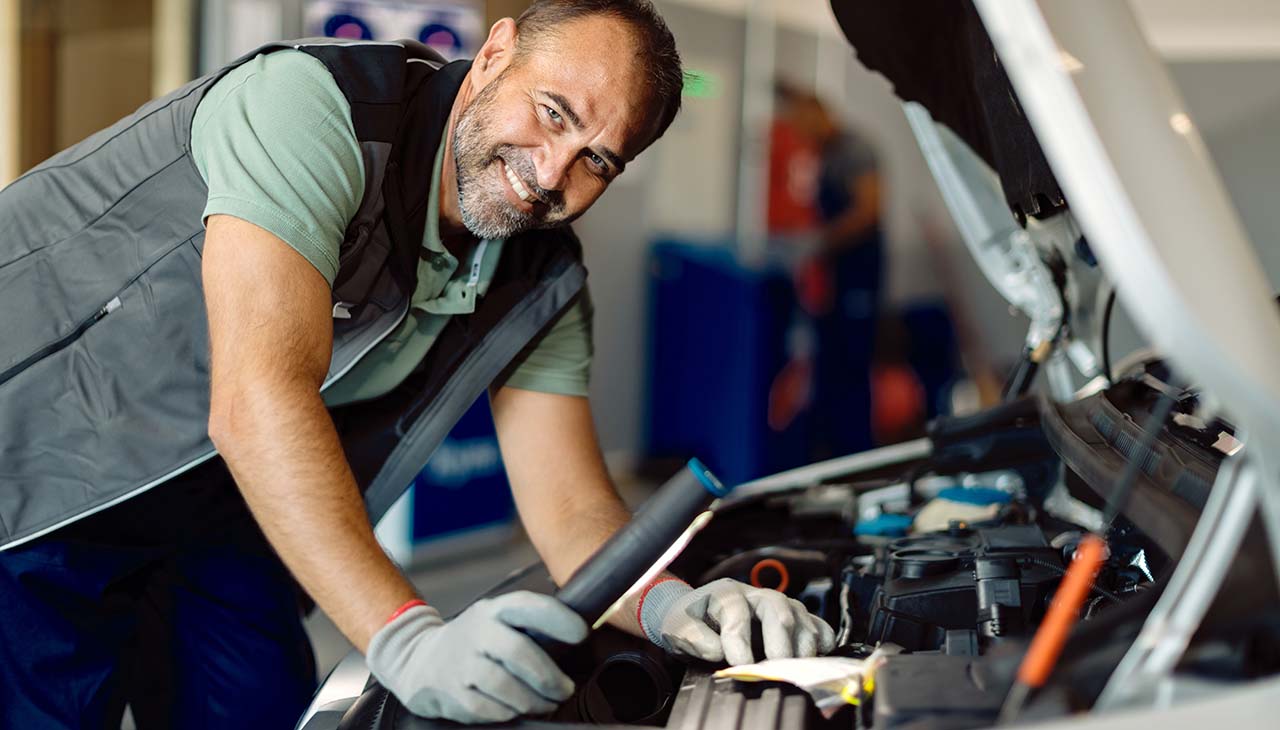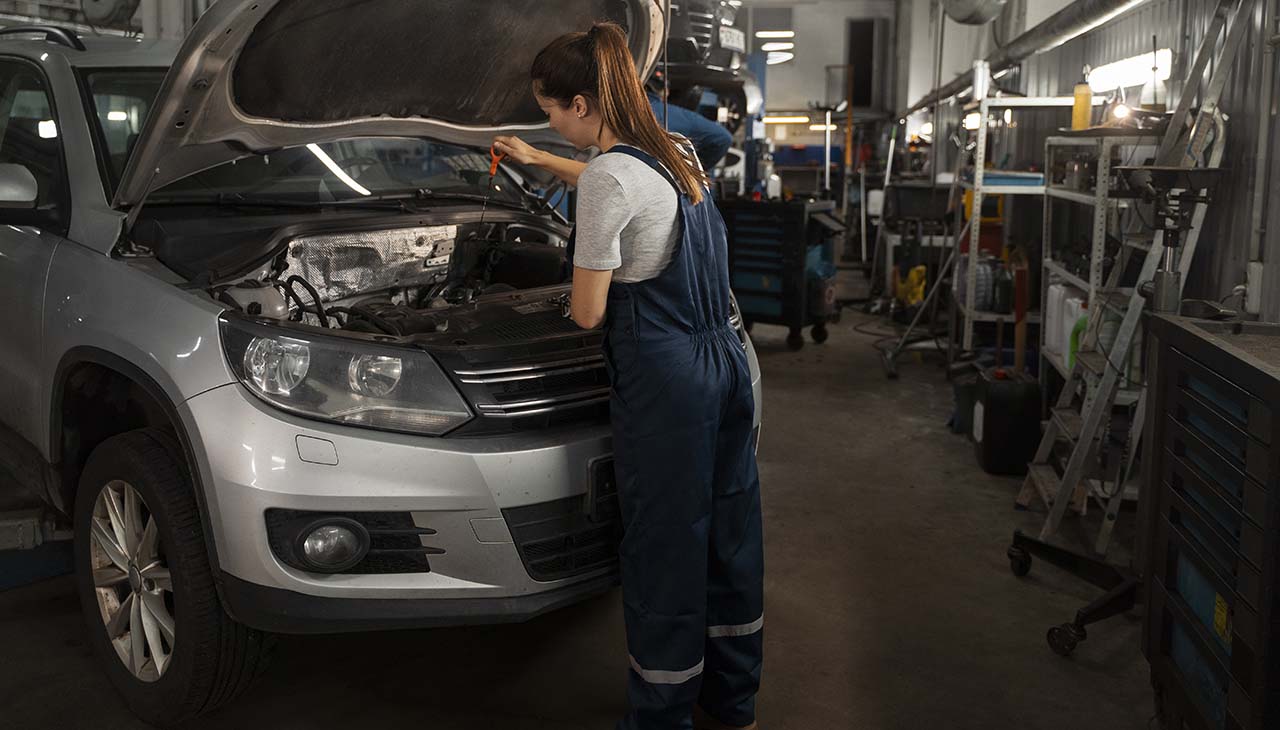Welcome to your comprehensive guide to routine car maintenance! Whether you’re a seasoned automobile enthusiast or a new car owner stepping into the world of automotive care, this guide is designed to help you understand and manage the essential upkeep your vehicle requires. Keeping your car in top condition not only ensures its reliability and safety but also contributes to its longevity and efficiency. From oil changes to tire rotations, we’ll walk you through the basics of car maintenance, offering expert advice and practical tips to keep your ride smooth and secure on the road.
Regular Check-ups
Oil Changes
Changing your car’s oil is crucial for keeping the engine running smoothly and extending its lifespan. Typically, it’s recommended to change the oil every 3,000 to 5,000 miles, depending on your vehicle’s make and model, as well as the type of oil used. Regular oil changes help in preventing engine wear and removing impurities that accumulate over time.
Fluid Levels
Keeping an eye on your car’s fluid levels is essential for its performance and safety. Ensure that you regularly check and maintain optimum levels of coolant, brake fluid, and transmission fluid. These fluids play a critical role in your car’s operation; for instance, coolant helps regulate engine temperature, while brake fluid is vital for the braking system’s effectiveness.
Tire Pressure and Tread Depth
Maintaining correct tire pressure is important for vehicle safety, fuel efficiency, and preventing premature tire wear. Check your tire pressure monthly, including the spare, and adjust it according to the manufacturer’s specifications. Similarly, monitoring tire tread depth is crucial for safe driving, especially in adverse weather conditions. Tires should be replaced when the tread depth reaches 2/32 of an inch to ensure adequate traction.
Battery Condition
The car battery is the heart of the electrical system, and keeping it in good condition is necessary for your car’s overall performance. Check the battery condition regularly, looking for signs of corrosion on terminals and ensuring it holds charge. A typical car battery lasts about 3 to 5 years, but regular checks can help you avoid unexpected failures.
Scheduled Maintenance
Following Manufacturer’s Recommended Schedule
Adhering to the manufacturer’s recommended maintenance schedule is pivotal for ensuring your vehicle operates efficiently and remains in good condition. This schedule, found in your car’s owner’s manual, details the necessary service actions and their appropriate timing, including timing belt replacement and air filter replacement.
Timing Belt Replacement
The timing belt is a critical component of your car’s engine, and its failure can lead to severe engine damage. Manufacturers typically recommend replacing the timing belt between 60,000 and 100,000 miles, but this interval can vary based on the vehicle make and model. Adhering to this recommendation is crucial to prevent unexpected and costly repairs.
Air Filter Replacement
Regular replacement of the air filter is vital for maintaining clean air entering your engine, which helps improve fuel efficiency, reduce emissions, and enhance engine performance. It’s generally advised to replace the air filter every 12,000 to 15,000 miles, depending on driving conditions. A clean air filter ensures your engine receives the proper air-to-fuel ratio, optimizing its function and lifespan.
DIY Maintenance Tips
Changing Wiper Blades
Replacing your wiper blades is a simple yet essential part of car maintenance that ensures clear visibility during adverse weather conditions. Wiper blades should be replaced every 6 to 12 months, depending on their condition and the climate in your area. A clear sign that it’s time to replace them is when you notice streaks or missed expanses of glass as they swipe. Changing wiper blades is straightforward and usually requires no tools, as most blades can be easily snapped on and off from the wiper arm.
Checking and Replacing Air Filters
We’ve previously touched on the importance of air filter replacement for engine performance. To check your air filter, simply remove it and hold it up to a light source. If you can’t see light passing through, it’s time for a replacement. This task can greatly impact your vehicle’s efficiency and is a quick DIY job. Air filters are typically accessible and can be changed without tools by opening the air filter compartment, removing the old filter, and placing a new one.
Inspecting and Replacing Spark Plugs
Spark plugs are critical for engine operation, as they provide the spark that ignites the fuel-air mixture, powering your car. A failing spark plug can lead to engine misfire, reduced fuel efficiency, and impaired performance. It’s recommended to check your spark plugs every 30,000 miles, but this can vary based on the vehicle and the type of spark plugs used. Inspecting them for wear and tear or deposits can help you determine if they need replacing. While replacing spark plugs may require some tools, it’s a manageable task for those with a bit of mechanical inclination, contributing to smoother engine performance and efficiency.
Seasonal Maintenance
Winter Preparations
Preparing your vehicle for winter is critical for ensuring safety and reliability during the cold months. One of the most important steps is to check and, if necessary, replace the antifreeze in your cooling system. Antifreeze, or engine coolant, prevents the water in the engine’s cooling system from freezing in cold temperatures. It’s advisable to ensure a 50/50 mix of antifreeze and water in the radiator to avoid freezing and overheating. Additionally, consider installing snow tires if you live in a region with heavy snow and ice. Snow tires provide improved traction, braking, and handling in cold, icy conditions, significantly enhancing winter driving safety.
Summer Preparations
For summer readiness, ensuring your vehicle’s cooling system is in top condition is paramount to prevent overheating. Check the coolant levels regularly and flush the system or top off coolant as needed. The air conditioning (A/C) system also demands attention before and during summer to provide relief from the heat and maintain comfort. Have your A/C system checked by a professional to ensure it’s fully charged, the filters are clean, and all components are functioning properly. This not only guarantees your comfort but also helps prevent more significant, costly repairs down the line.


